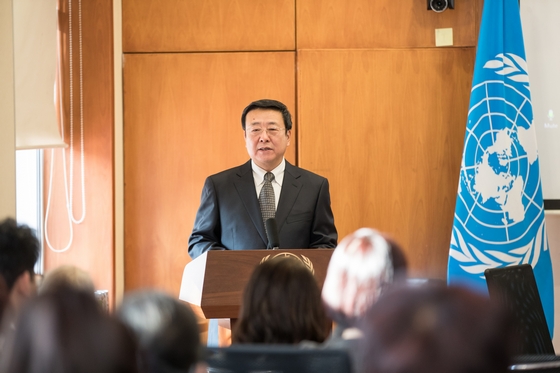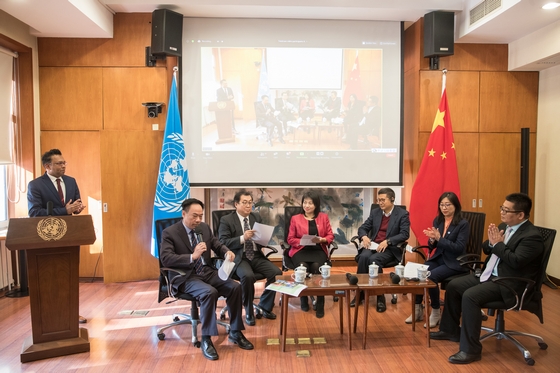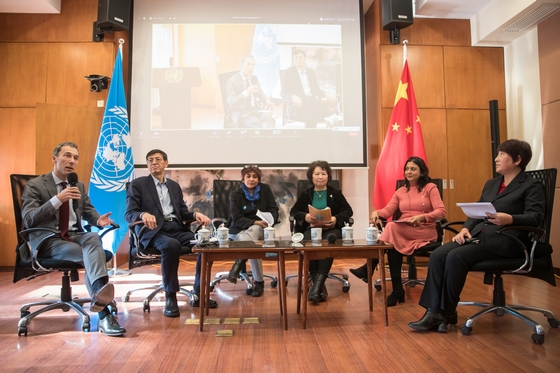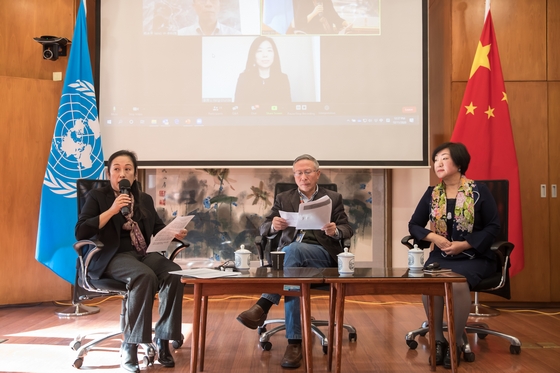CSAM Leads Coordination of the United Nations Country Team in China and Its Partners to Discuss Policy Recommendations for Improved Food Systems amid Recovery from the Pandemic
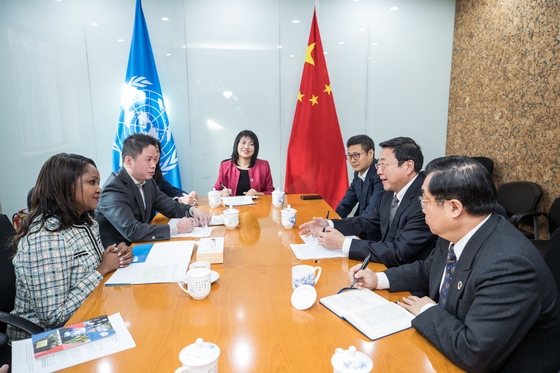 The UN Country Team in China gathered with its partners to discuss policies and actions to address the complexity and importance of food systems, in particular amid the recovery from the COVID-19 pandemic.
The UN Country Team in China gathered with its partners to discuss policies and actions to address the complexity and importance of food systems, in particular amid the recovery from the COVID-19 pandemic.
On 11 December, a Policy Dialogue titled ‘China’s Experience in Strengthening Food Systems amid the Response to COVID-19’ took place at the UN Compound in Beijing. Under the auspices of the Resident Coordinator, nine UN entities coordinated by ESCAP’s Centre for Sustainable Agricultural Mechanization (CSAM) invited partners from central and local government, academia, private sector, and think tanks, for a reflection on how to address the fragility of food systems that has been highlighted across the world by the pandemic.
Mr. Li Jinxiang, State Chief Veterinary Officer of the Ministry of Agriculture and Rural Affairs, pointed out that China coordinated the prevention and control of the epidemic while making efforts to ensure the stable production and supply of grain and agricultural products. He also said that China is willing to work with other countries to promote agricultural cooperation, especially South-South cooperation, to a wider range and deeper level under the framework of the United Nations.
Given the particular situation of China, where the recovery from the pandemic’s impacts started remarkably early, the focus of the UN Country Team has also shifted from immediate response to the design of recovery interventions that ‘build back better’, establishing better conditions for ending poverty and accelerating the achievement of the Sustainable Development Goals.
For this purpose, “the whole agricultural value chain – from production to processing and retail – must be put back on a sustainable track and rejuvenated” said Ms. Amakobe Sande, interim UN Resident Coordinator in China, adding that “we must maintain essential food and nutrition services ensuring no one is left behind and that vulnerable segments of the agricultural workforce, elderly workers and women farmers have the capacities and access to solutions such as agricultural machinery and ICT-enabled distribution platforms.”
Much of the attention this year has been focused on health protection as well as the pandemic’s socio-economic impacts and on inclusive recovery, and the dialogue highlighted how these are closely linked to food systems, which also encompass the need to protect ecosystems, biodiversity and heritage agriculture. The event identified recommendations on how to restore robust and resilient food systems, ensure food security for the most vulnerable, and protect ecosystems and food systems. These are meant to be the stepping stone for the work of the United Nations in China towards the global Food Systems Summit in 2021.
For more information, visit:
http://www.un.org.cn/info/6/1115.html
https://www.un.org/en/food-systems-summit
For media enquiries, please contact:
Marco Silvestri, Programme Management Officer, CSAM, silvestrim@un.org
Louise Xi, RCO Communications Focal Point, xi.li@one.un.org
